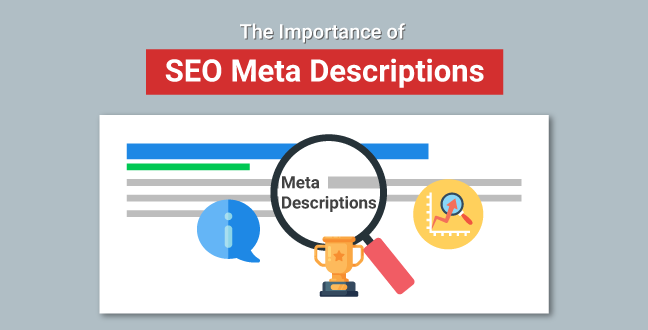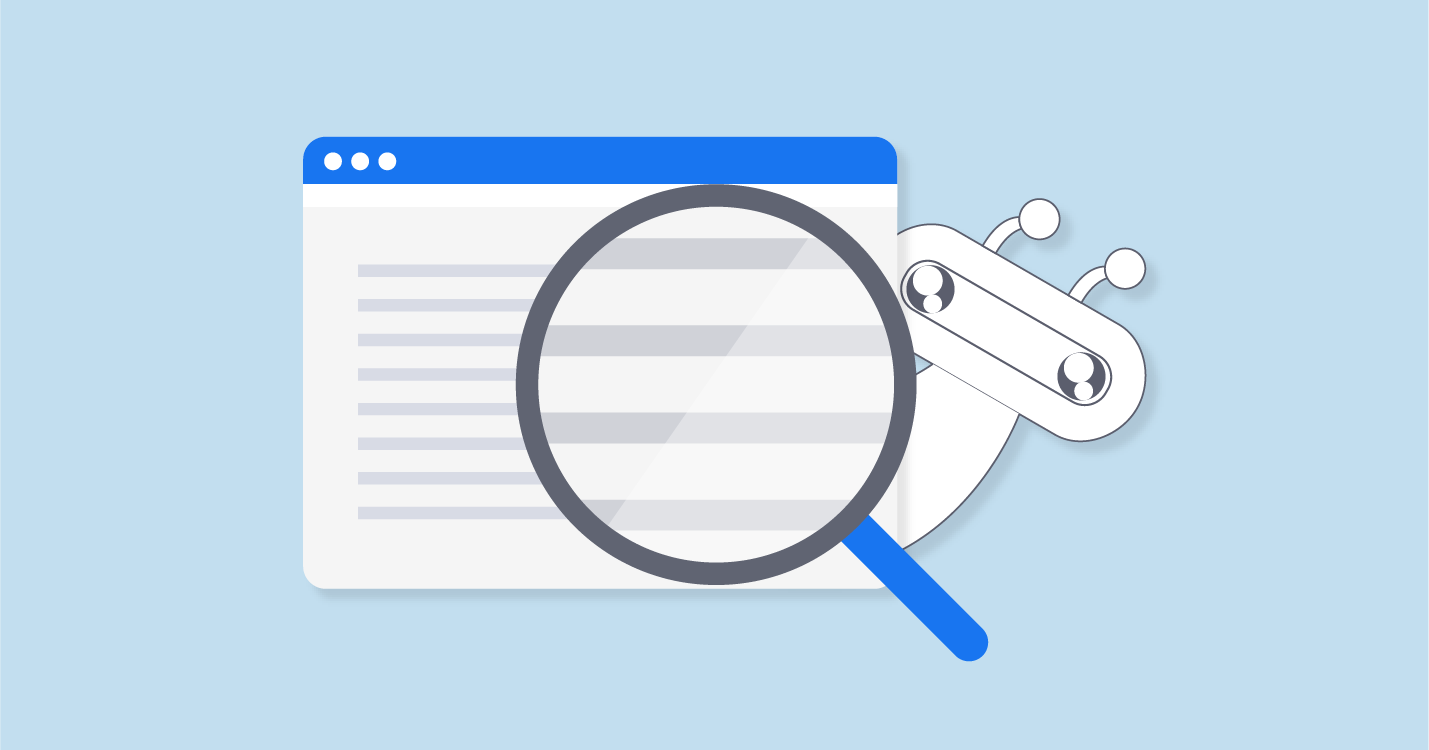What is a Meta Description? – And How to Write Them
Search engine optimization is a domain that requires constant follow-ups and updates. It takes effort to keep your websites and web pages up to date and fresh. Given the significance of SEO, the effort you will put in will be worth the results. You should pay attention to many different aspects of SEO, and meta descriptions are one of the most important things you will be working on. Even if every other thing on your website is perfectly optimized, you cannot expect magical results if your meta description is not optimized.

For that reason, you should know as much as the detail about meta descriptions, in addition to the tips on how to write them.
Today, we will share the details about meta description, including what it is, what its significance is, how to write meta descriptions, and other tips you should keep in mind about meta descriptions.
Without further ado, let’s get started!
Try for free to boost your website traffic!
What is a Meta Description?
A meta description is an HTLM feature that includes a short outline of what is present in the given webpage. It takes place right under your URL in SERPs and will be one of the main things people consider while clicking on your webpage.
It is important to note that meta descriptions are not a direct ranking factor. However, they will definitely influence whether if people will click on your webpage and indirectly influence your rankings. Besides, they have a significant influence on your click-through rates.

Meta description plays a big role in search marketing. A typical meta description consists of around 155 characters, in which spaces are included.
The function of a meta description is quite understandable, informing people about what has expected of them as they click on the web page. Once you know how to write meta descriptions to be beneficial to you, you can create excellent meta descriptions which will convince people to click on your webpage.
Why are Meta Descriptions Important?
Before discussing other aspects of meta descriptions, it would be best to say a few words regarding their importance.
Given that some popular search engines, including Google, are not considering meta descriptions as a ranking factor, its importance might seem to be decreased to you.
But it is not.
Increase click-through rates
The statistics show that webpages with meta description have more clicks than those do not have one. With that being said, you can infer having more clicks will be a ranking factor, and hence, meta descriptions are your way of ranking higher.
Google values user experience in meta descriptions. So, more people clicking into your content and spending time there will signal that people are finding what they are looking for and really enjoying it.
If Google detects such a pattern, the only thing it will do is to rank your result higher on SERPs.
Moreover, a meta description will do more for you just than increasing click-through rates in search engines. If your webpage link takes place in any social ads or other webpages, the meta description might be shown there as well and bring you more clicks through different channels.
Build trust
A well-written meta description helps you to build trust with your visitors. If you correctly inform people regarding what is expecting them as they click on your webpage, it means that you are keeping your promise.
Besides, if your website gives people what they need (since they clicked on it after reading your meta description), it is most likely that they will spend some time there, and they will not bounce back as soon as they see it.
Take control of your hands
You should also keep in mind that if you do not have a meta description written by you, some sharing systems will create an automatic meta description for your website.
How much trust do you have for an automatically generated meta description? The answer should be “too little.” Because artificial intelligence will not be as successful as you while defining your content, you should be taking control of what people will see on your meta description.

The automatic meta description will most likely include a number of keywords that do not make sense when combined. Nobody would be attracted to those when you have the chance to create meaningful and attractive meta descriptions.
Make the perfect first impression
The meta description will be your chance to make a perfect first impression on your visitors. Google aspires to offer the most relevant and informative results for its users.
It should now make sense why Google is not using meta descriptions as a ranking factor; because the users are determining which meta descriptions are worthy of clicks and which are not. It makes sense, right?
Just like how meta descriptions help you to make good first impressions, slipshod meta descriptions can wreck the trust you have with your visitors. You should know how clickbait in any form is harmful to SEO success; that counts meta descriptions, too.
If you write something other than what is present on your website just to attract attention, people will bounce back as soon as they click and see that you were lying. Bounce rates are never good for your website, so you need to be careful while writing meta descriptions.
How to Write Good Meta Descriptions?
Writing good meta descriptions will eventually help your website or webpage. Now that you know the ways how meta descriptions help your content, we can talk about how to write good meta descriptions.
As we mentioned earlier, SEO is a domain that is constantly changing and growing. Luckily enough, meta descriptions’ significance remained stable over the years, and there are some tips that would help you to master the art of meta descriptions.
Here are some of the most important tips regarding writing a good meta description.
Be Careful about Meta Description Length
Where the meta description is located should give you a signal about its length: there is not a lot of space to detailly describe your content.
The meta descriptions you will write should be aimed to summarize what the page is about. You do not need to write long, detailed sentences.
In fact, even if you do write long sentences, search engines are not able to give them a place as meta descriptions.
So, if you are not conscious about meta description length, you will most likely never have one on your web page or website or have a deficient one. The character limit for meta descriptions is 155 characters, where spaces are included.
If you write your meta description with a maximum of 155 characters, then it means you are good to go. You should keep in mind that search engines might include some snippets on your results, which would increase the characters.
Because of this, you might want to stay below the character limit. 145-150 characters are the optimal character limits that people want to stick to.
An important thing to note here is not only focusing on character count. Indeed, character count has an indispensable impact, but it is most likely to be bad if you write your meta description solely based on character count. Instead, you might want to focus on the message you want to deliver, then work on the character count to make it optimized.
Just write what you think will best describe your content, then try to explain it with fewer words!
Be Creative and Interesting
Meta descriptions are supposed to be informative. But who said that they couldn’t be creative and exciting? They need to attract attention as much as they need to be informative. You cannot avoid it if you want to have successful meta descriptions.
If your meta descriptions are boring, what would be the motive for people to click into them?
Typically, using a call-to-action where you directly invite people to take certain actions to work. You might also want to use hypothetical questions in your meta description. The intention is to keep attention alive and arouse curiosity in people who are reading it.

For example, if you are selling cat nail clippers, you might want to include sentences such as:
- Are you tired of your cat stabbing you with its nails?
- This nail clipper will be the best thing you can have for your cat.
- Get it now and make peace with your cat!
- Click now to see how this product can help you.
We said it once, and we will repeat it: do not make false promises even if you are trying to be interesting. Just don’t. You might say that “we offer several nail clippers for different cat species and sizes” to attract attention. But if you do not offer different nail clippers for different cat species and sizes, people will most likely leave your website.
Just stick to the truth but make it interesting enough to arouse curiosity.
Talk with your Visitors
Meta descriptions are not a proper place for self-advertising. You are using meta descriptions as a way to introduce your business or what you will be most likely to fail.
You need to be directly talking to your visitors about what they can expect from your webpage and what the content is about. If you own a company, do not write something like “this company was established in 1999, and we are….” Nobody would want to read that.
Instead, talk with people who see it. Your aim is to signal people that there is something interesting for them inside regarding their passions, needs, and values.

People will value personalized communication more than anything, which is another reason why you should not trust automatized meta descriptions written by share channels.
Work on Keywords
As in most of the domains of search engine optimization, keywords play a crucial role in meta descriptions. If you are trying to build a successful page for SEO, you should have used keywords in your content, landing pages, product descriptions, and everywhere where you can use text.
This should give a signal on keyword optimization in meta descriptions. In fact, one of the biggest mistakes you will ever make while writing meta descriptions is not to focus on keywords.
Google will automatically make the words used in search queries in bold. This is a major signal for keyword optimization on your meta description.

Additionally, if you include the important keywords used in search queries, you can benefit from Google making them bold since they will attract more attention.
In content, keywords are a predictor for Google to understand what the page is about. Even though meta descriptions are no longer a direct ranking factor, this does not mean that Google cannot understand and make sense of meta descriptions.
Google will read and understand the meta descriptions, which is incredibly significant because how else can it classify you in relative results if it does not know what your page is about?
It would be best to choose a focus keyword and use it multiple times in your meta description if you could. It is not that you need to stuff keywords on your meta descriptions but optimize the use of them.
For example, if your webpage is about “cat nail clippers,” those three words (cat, nail, clippers) should definitely be on your meta description.
Be Specific
While it might not always be possible, being specific where you can is a great plus for a successful meta description.
Being specific in the meta description is extremely important, especially if you are selling a product. People who have intents to shop will search for exactly what they are looking for. Including general words will not be as helpful as specifying the product as much as possible.
You might want to include the color, model, manufacturer, price, or anything relevant to the product.
For example, suppose that you are selling iPhones. On your meta description under the relevant links, you might want to include as much detail as possible. Instead of just including the word “iPhone 12,” you can include “iPhone 12 128 GB space gray.”

Being specific under a certain character limit might be very challenging. For this reason, you might want to choose a qualification that people will be most likely to search for, which does not have to be all about the technical aspects of the products.
What does this product will have for them? People want to know what the benefit is they will get out of a specific product or service. For example, instead of specifying the camera pixels, you might want to write “excellent for professional photography.”
If this person is not an authority figure of photography, they would want to hear that they can take cool pictures with it instead of the technical aspects.
Keeping the balance of technical attributes and the things that can be provided to the customer is a big part of writing successful meta descriptions.
Do not Use Clickbait
Even though sticking to the truth while writing meta descriptions was mentioned several times earlier, it is important enough to highlight it once more.
You must inform people regarding what they will receive.
Or, they will leave at the same speed they arrived at your webpage.
Moreover, Google will be considering the bounce rate you have. If people are clicking to your website, seeing what is there, and leaving immediately, then Google will have an idea about your content.
Which is irrelevant and flawed.
Once Google decides that your content is not useful for users, then you can find yourself at the bottom of SERPs.
Keeping your meta description unique and interesting while sticking to the truth is possible. And clickbait is never a wise thing to do!
Do not Copy – Use Unique Meta Descriptions
You inserted a search query that perfectly matches your website to Google.
And you copied the meta description of the number one search engine result.
This scenario is one of the most terrible things you can do. Not only because you are stealing someone else’s work and effort, but you are being blacklisted by Google, too!
Even though you have extremely similar content with that website, duplicating meta descriptions is unacceptable behavior, and Google will not accept it no matter what.
Not duplicating content is basic SEO knowledge, and there is nothing plausible that would make you think it is not applicable for meta descriptions.
However, there can be situations where your meta description is very much similar to other websites. If you work on optimizing it in the best way possible, they can even be the same since the other webpage owner worked through the same steps with you.
Luckily, there is a way to handle it. There are many tools on the internet that will help you to check if your meta description is duplicated by mistake.
Taking this simple precaution will help you to avoid being blacklisted by Google and enjoy your website’s original success.
Take Inspiration from Google Ads
Nobody can know Google better than Google. As you implement a search query, the rankings will be depending on Google’s quality score.
The quality score directly influences one thing: click-through rates. The number one ad that shows up in SERPs will be the ad that is getting the most clicks.
Once you look at the first results on Google Ads, you have an excellent base to take inspiration from. Of course, it goes without saying that you are not going to copy, but instead, take inspiration from how they wrote it.
Having a solid example in front of you is a great step to start. If you detect a pattern where successful ads use, there is nothing wrong with following similar steps to achieve success in your meta description.
It would be best to search your target keyword or keywords on Google to see the most relative results.
Be Time Sensitive (if needed)
If your website is somehow time-oriented, you need to specify a date or year; you might want to update it as time goes.
For example, you have a webpage where you explain SEO trends. SEO trends are constantly changing, and most of the SEO trends webpages include a year on it.
So, what happens as one year passes and we are on 2022 instead of 2021?
Your webpage, and of course, your meta description, should be updated. As you update your content with the latest trends of 2022, your meta description has to naturally change. Do not let time get you behind, be ahead of the time instead.
Meta descriptions are one of the most important SEO domains that you should keep an eye for. The following are some of the most frequently asked questions about meta descriptions that might help you to understand them better.
FAQ
What is a meta description?
A meta description is a summary of your webpage’s content. It includes the basic information regarding what is expecting your visitors as they click on the link.
Why are meta descriptions important?
Meta descriptions are important because they create the first impression of your webpage or website. Additionally, it tells people what the page is about and plays a crucial role in the decision-making process. Meta descriptions are also significant for click-through rates.
What does a meta description look like?
A meta description should look like a short description of the webpage’s content. It tells people the important details of the content.
What should I write in a meta description?
You should write about the content of your page and what your visitors can expect from your webpage. It is crucial not to use false advertisements and stick to the truth in the whole meta description.
What is a good meta description length?
Google’s limitation for meta description is 155 characters where spaces are included. However, given that Google can add snippets, an ideal meta description should be 150 characters with spaces included to not take any risks.
Test Your Website Issues
You can quickly analyze your site